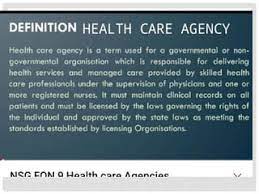Exploring the Intersection of Health-Related Services and Medical Tourism
The Intersection of Health and Travel: Exploring Medical Tourism
Medical tourism, the practice of traveling abroad to receive medical treatment, has gained significant popularity in recent years. This trend is driven by various factors, including rising healthcare costs in many countries, long wait times for certain procedures, and the desire for access to high-quality care not available locally.
One of the key benefits of medical tourism is the opportunity for patients to receive treatment from world-class healthcare providers at a fraction of the cost they would incur in their home country. Countries like India, Thailand, Mexico, and Turkey have emerged as popular destinations for medical tourists due to their advanced medical facilities, skilled healthcare professionals, and competitive pricing.
Patients seeking medical treatment abroad often opt for procedures such as cosmetic surgery, dental care, orthopedic surgeries, fertility treatments, and wellness retreats. These services are typically combined with travel packages that include accommodation, transportation, and post-operative care.
While medical tourism offers numerous advantages, there are also important considerations to keep in mind. Patients must research their chosen destination thoroughly to ensure that the healthcare facility meets international standards of quality and safety. It is essential to verify the credentials of healthcare providers and inquire about their experience in treating international patients.
Cultural differences and language barriers can also pose challenges for medical tourists. To address these issues, many medical tourism companies offer concierge services that assist patients with travel arrangements, interpretation services, and cultural orientation.
Despite these challenges, medical tourism continues to thrive as an attractive option for individuals seeking affordable and high-quality healthcare services. As technology advances and global connectivity improves, the future of medical tourism looks promising, offering patients a world of possibilities for enhancing their health and well-being.
Exploring Medical Tourism: Key Questions and Insights for a Safe and Successful Experience
- What is medical tourism?
- What are the benefits of medical tourism?
- Which countries are popular destinations for medical tourism?
- How can I choose a reputable healthcare provider for medical tourism?
- What types of medical treatments are commonly sought through medical tourism?
- What are the risks and considerations associated with medical tourism?
- How can I prepare for a successful medical tourism experience?
What is medical tourism?
Medical tourism refers to the practice of traveling to another country to seek medical treatment or healthcare services. This growing trend allows individuals to access a wide range of medical procedures, from elective surgeries to specialized treatments, often at a lower cost compared to their home country. Medical tourism offers patients the opportunity to receive care from renowned healthcare providers in modern facilities while combining their treatment with a travel experience. By bridging the gap between health and travel, medical tourism provides individuals with options for quality healthcare that may not be readily available or affordable in their own region.
What are the benefits of medical tourism?
The benefits of medical tourism are manifold, offering patients access to high-quality healthcare services at a fraction of the cost they would incur in their home country. By traveling abroad for medical treatment, individuals can benefit from shorter wait times for procedures, access to advanced medical facilities and technologies, and the opportunity to receive care from skilled healthcare professionals with international expertise. Additionally, medical tourism often includes comprehensive travel packages that cover accommodation, transportation, and post-operative care, providing patients with a seamless and stress-free healthcare experience.
Which countries are popular destinations for medical tourism?
Several countries have emerged as popular destinations for medical tourism due to their advanced healthcare facilities, skilled medical professionals, and competitive pricing. Countries like India, Thailand, Mexico, Turkey, South Korea, and Malaysia are among the top choices for individuals seeking medical treatment abroad. These countries offer a wide range of services including cosmetic surgery, dental care, orthopedic procedures, fertility treatments, and wellness retreats. Patients can benefit from world-class healthcare services while enjoying the unique cultural experiences each destination has to offer. It is essential for prospective medical tourists to research and choose a destination that aligns with their specific medical needs and preferences.
How can I choose a reputable healthcare provider for medical tourism?
When considering medical tourism, selecting a reputable healthcare provider is paramount to ensuring a safe and successful treatment experience. To choose a trustworthy healthcare provider, it is crucial to conduct thorough research on the facility’s accreditation, reputation, and track record. Look for hospitals or clinics that are internationally accredited and recognized for their quality of care. Reading patient reviews and testimonials can also provide valuable insights into the experiences of previous medical tourists. Additionally, verifying the qualifications and experience of the healthcare professionals who will be involved in your treatment is essential. By taking these steps and seeking guidance from reputable medical tourism agencies, you can make an informed decision when selecting a healthcare provider for your medical journey abroad.
What types of medical treatments are commonly sought through medical tourism?
A wide range of medical treatments are commonly sought through medical tourism, with some of the most popular procedures including cosmetic surgery, dental treatments, orthopedic surgeries, fertility treatments, and wellness retreats. Patients often travel abroad to access specialized care in areas where they can benefit from advanced technology, experienced healthcare professionals, and cost-effective treatment options. Additionally, services such as weight loss surgeries, cardiac procedures, cancer treatments, and elective surgeries are also frequently sought by individuals seeking to combine healthcare with travel experiences. The diversity of medical treatments available through medical tourism allows patients to explore a variety of options tailored to their specific health needs and preferences.
What are the risks and considerations associated with medical tourism?
When considering medical tourism, it is crucial to be aware of the risks and considerations involved. One significant risk is the potential variance in healthcare standards and regulations across different countries, which may impact the quality of care received. Language barriers and cultural differences can also pose challenges in communication and understanding treatment options. Additionally, long-distance travel following certain medical procedures can increase the risk of complications such as blood clots. Patients should thoroughly research their chosen destination, verify the credentials of healthcare providers, and ensure that facilities adhere to international standards to mitigate these risks. Seeking guidance from reputable medical tourism companies can help navigate these considerations and ensure a safe and successful healthcare experience abroad.
How can I prepare for a successful medical tourism experience?
Preparing for a successful medical tourism experience involves thorough research and careful planning. Start by researching reputable healthcare providers in your desired destination, ensuring they have the necessary accreditations and expertise in the treatment you require. Consult with your local healthcare provider to understand the procedure and potential risks involved. Arrange for all necessary medical records and documentation to be translated into the local language of the destination country. Consider factors such as travel insurance, visa requirements, accommodation, and post-operative care arrangements to ensure a smooth and stress-free experience. Communication with your chosen healthcare provider and medical tourism facilitator is key to addressing any concerns or questions you may have before embarking on your journey for treatment.



